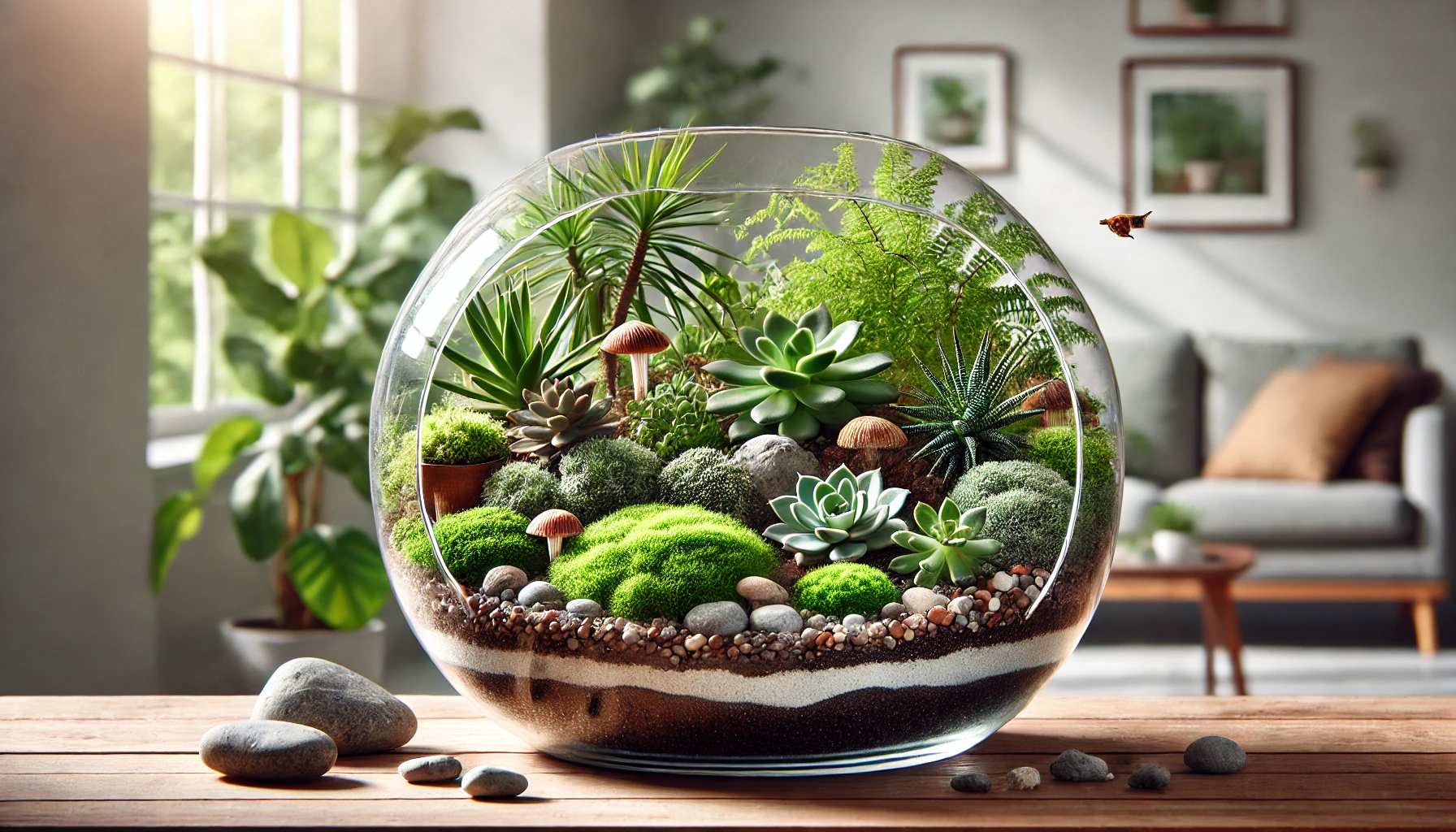Terrariums are a creative and low-maintenance way to bring nature indoors. These miniature gardens enclosed in glass add a touch of greenery to your space and require minimal upkeep. Whether you’re a seasoned plant enthusiast or a beginner, terrariums are a fun and rewarding project. In this article, we’ll guide you through setting up and caring for a beautiful terrarium.
What is a Terrarium?
A terrarium is a self-contained environment where plants grow in a glass container. They can be open (ideal for succulents and cacti) or closed (perfect for tropical plants that thrive in humidity).
Step 1: Choose the Right Container
Select a container that fits your aesthetic and plant choices.
- Open Terrarium: Best for plants that prefer dry conditions, like succulents.
- Closed Terrarium: Ideal for humidity-loving plants like ferns or mosses.
Examples of Containers:
- Glass jars with lids.
- Fishbowls or vases.
- Repurposed lanterns or bottles.
Step 2: Gather Materials
You’ll need the following to set up your terrarium:
- Gravel or Pebbles: For drainage at the bottom of the container.
- Activated Charcoal: Helps filter the air and prevent odors.
- Sphagnum Moss (Optional): Prevents soil from seeping into the drainage layer.
- Potting Soil: Use soil suited to your plants’ needs (e.g., cactus soil for succulents).
- Plants: Choose small, slow-growing plants.
- Decorative Elements (Optional): Add stones, figurines, or shells for a personal touch.
Step 3: Assemble Your Terrarium
1. Create the Drainage Layer:
- Add a 1–2 inch layer of gravel or pebbles to the bottom of the container.
- Sprinkle a thin layer of activated charcoal over the gravel.
2. Add Soil:
- Add 2–3 inches of potting soil on top of the drainage layer.
- Ensure the soil is suitable for the chosen plants.
3. Plant Your Terrarium:
- Make small holes in the soil and place the plants gently.
- Arrange them based on size, placing taller plants at the back and smaller ones in front.
4. Decorate:
- Add moss, stones, or other decorations to enhance the look.
Step 4: Caring for Your Terrarium
1. Watering:
- Open Terrariums: Water sparingly, allowing the soil to dry out between waterings.
- Closed Terrariums: Water less often, as the moisture recycles within the container.
2. Light:
- Place the terrarium in bright, indirect light.
- Avoid direct sunlight, which can overheat the container and damage the plants.
3. Pruning:
- Remove dead leaves to prevent mold and maintain a tidy appearance.
- Trim overgrown plants to keep the arrangement balanced.
4. Ventilation (for Closed Terrariums):
- Open the lid occasionally to let fresh air in and prevent condensation buildup.
Creative Terrarium Ideas
- Fairy Garden Terrarium: Add miniature houses and figurines for a whimsical touch.
- Themed Terrarium: Create a desert or tropical scene with plants and decorations.
- Hanging Terrarium: Use glass orbs to hang your terrarium for a modern look.
Troubleshooting Common Issues
1. Mold Growth:
- Solution: Improve ventilation and remove affected leaves.
2. Yellowing Plants:
- Solution: Adjust watering and ensure the right light levels.
3. Overgrown Plants:
- Solution: Prune regularly to maintain the terrarium’s appearance.
The Joy of Terrariums
Terrariums are a versatile and beautiful way to connect with nature indoors. With a little creativity and care, you can create a thriving miniature garden that adds life and character to any space.

